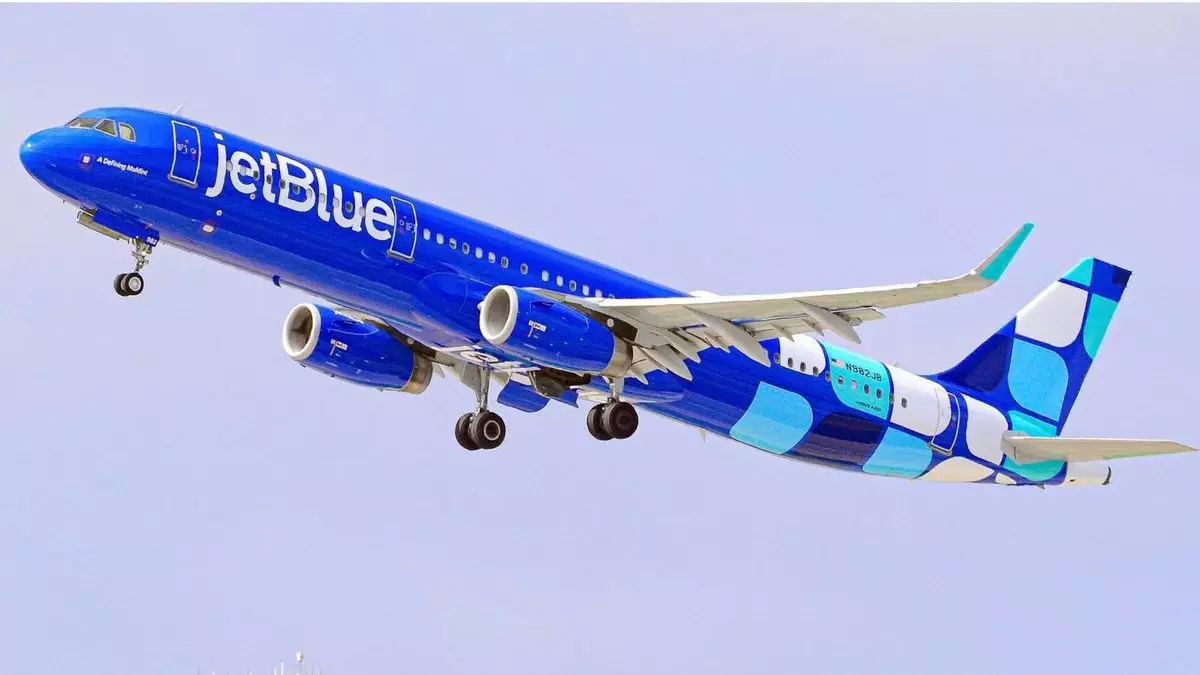JetBlue recently announced the deferral of deliveries of 44 Airbus A321 aircraft until 2030 and beyond. Initially scheduled for delivery between 2025 and 2029, this move aims to strengthen the airline’s balance sheet and improve cash flow. The decision to delay these planes will not only impact the airline’s fleet expansion plans but will also result in a slower growth trajectory, particularly in JetBlue’s transatlantic operations.
The deferred aircraft include 13 A321XLR models, which JetBlue intended to use for expanding its European services. Currently, JetBlue operates 11 transatlantic routes, connecting New York JFK and Boston with cities like London, Dublin, Amsterdam, Paris, and Edinburgh. While European flying has been deemed as a vital component of JetBlue’s network, the deferral of the A321XLRs will undoubtedly have repercussions on the airline’s growth in that market.
By deferring these aircraft, JetBlue estimates a reduction in capital expenditures of approximately $3 billion throughout the decade. The airline now plans to take delivery of just 11 more A321s in the coming years. Moreover, due to mandated inspections of Pratt & Whitney GTF engines for potential metal contamination, JetBlue anticipates having an average of 11 A321s grounded this year, with this number expected to rise to the mid to high teens next year.
JetBlue’s executives introduced a set of initiatives known as JetForward during the recent earnings call. These initiatives are anticipated to generate additional earnings of $800-$900 million by 2027. The airline aims to achieve break-even status by 2025 through the implementation of JetForward. Some strategies under this initiative have already been executed, such as discontinuing more than 50 routes and 15 destinations to refocus on core markets in New York, New England, Florida, the Caribbean, and transcontinental hubs.
Recognizing the need to enhance operational reliability, JetBlue has started investing more in this area, which has historically been a weakness for the airline. These investments include increased scheduled maintenance time, automated tracking of aircraft turns, extended block time for certain flights, and improved self-service tools for customers. As a result of these changes, JetBlue witnessed a notable seven-point improvement in its on-time performance in the second quarter.
Despite analyst expectations of a loss, JetBlue reported a net income of $25 million in the second quarter, defying projections. This positive financial outcome resulted in a significant boost in the airline’s stock performance, with shares rising by more than 11% in mid-afternoon trading.
JetBlue’s decision to defer deliveries of Airbus A321 aircraft signifies a strategic move aimed at enhancing the airline’s financial position and operational efficiency. While these deferrals may impact growth plans in the short term, the implementation of initiatives like JetForward and investments in operational reliability are expected to position JetBlue for long-term success in a challenging aviation landscape.


Leave a Reply